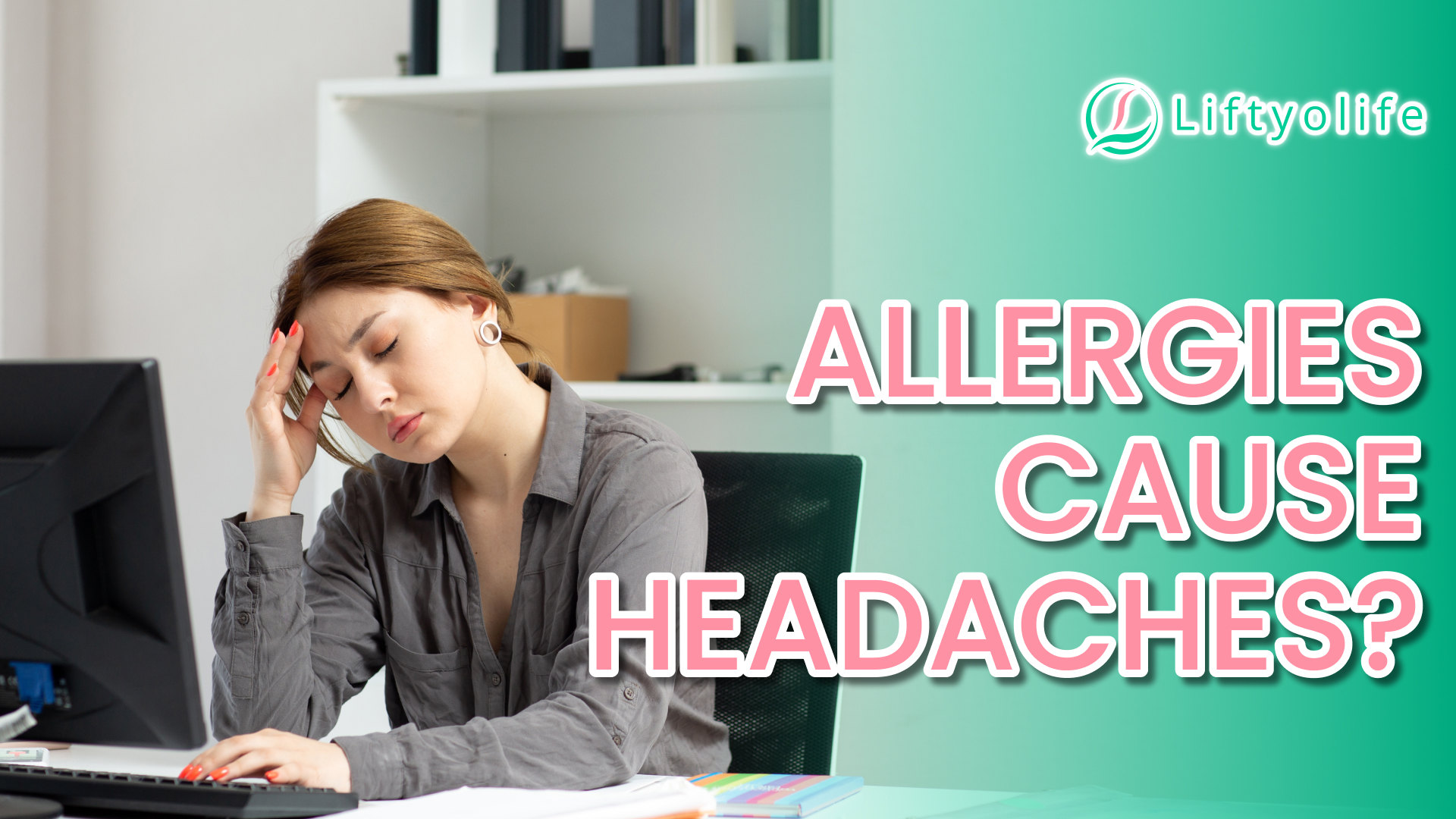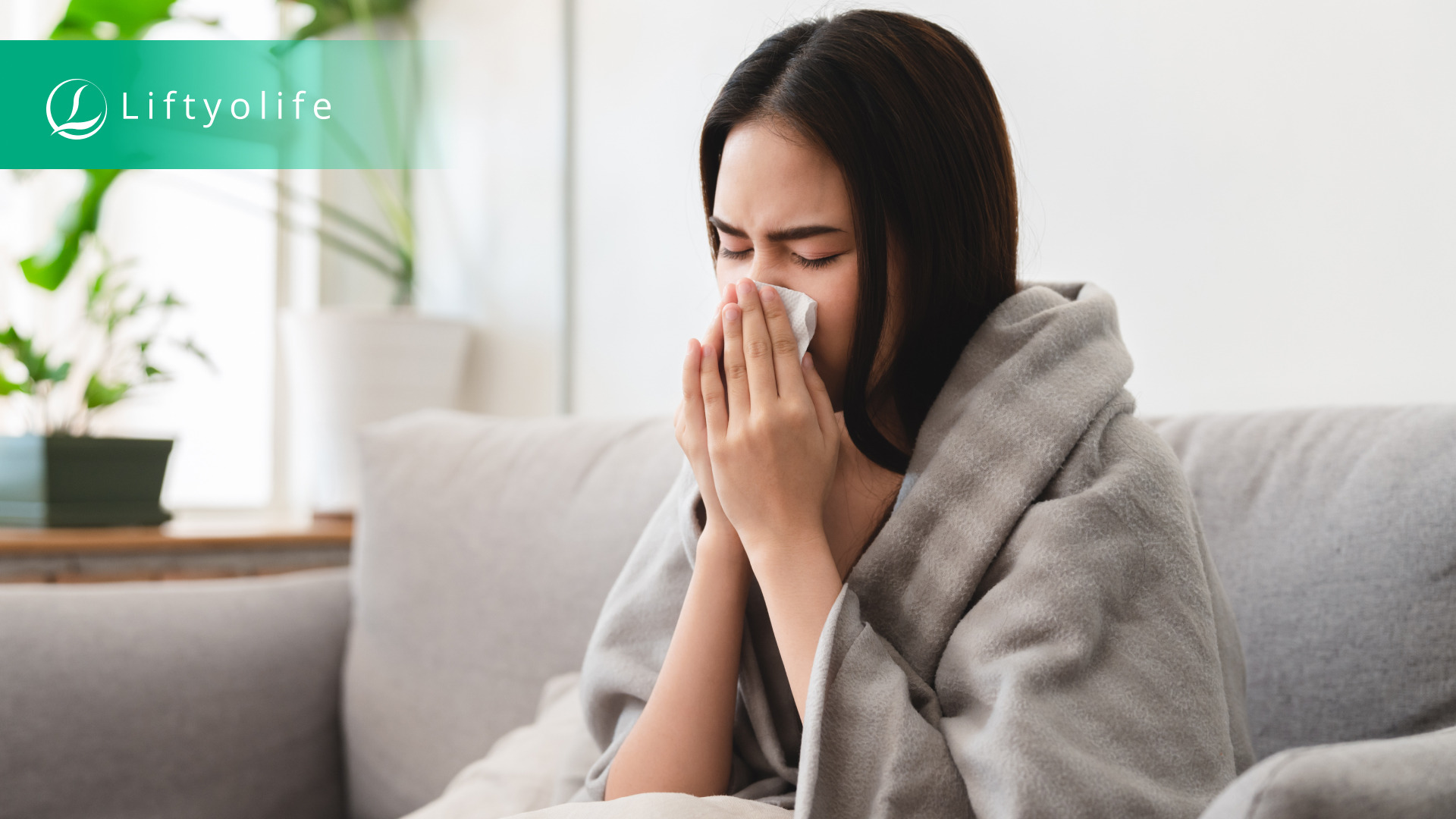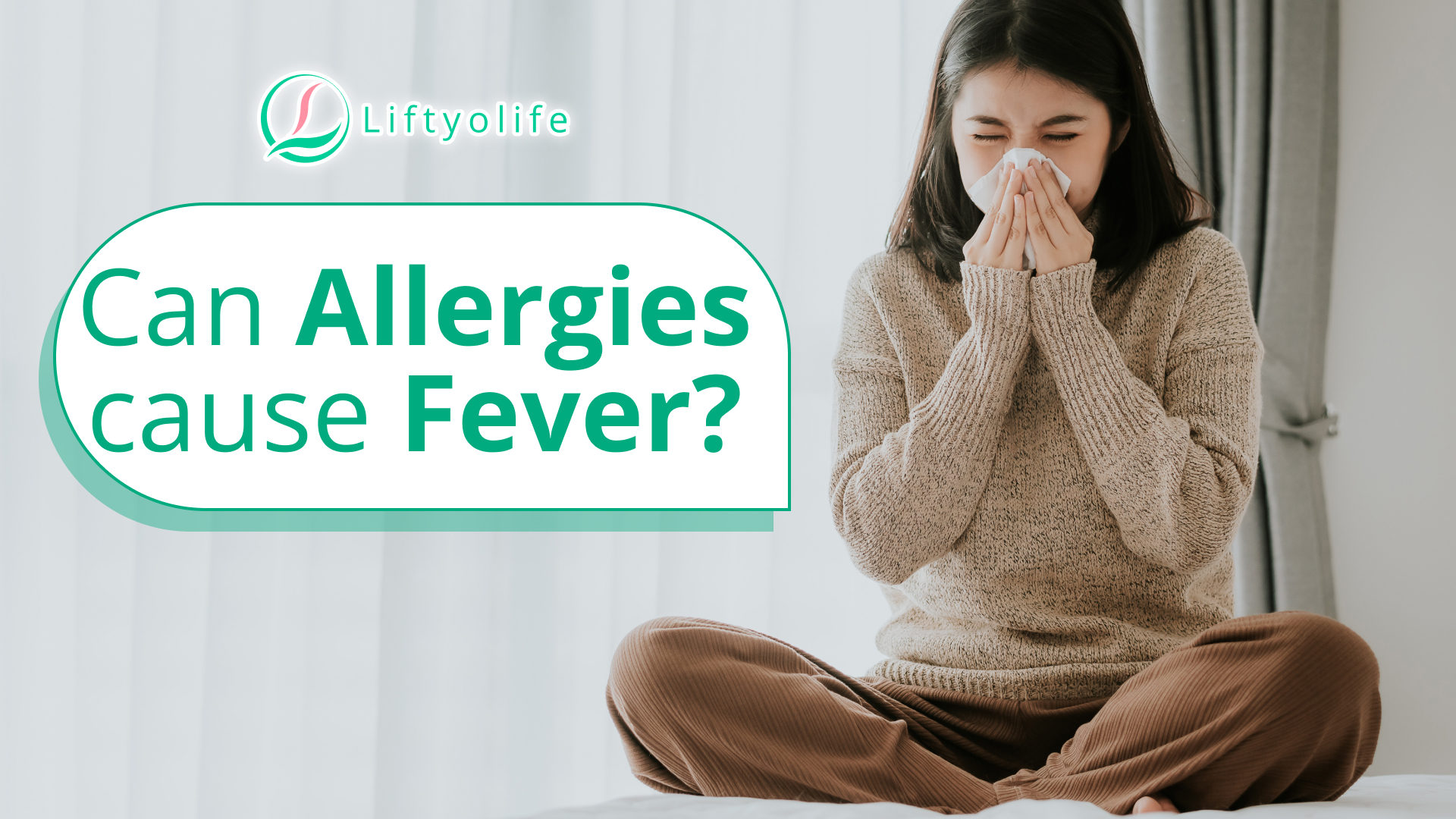Can Allergies Cause Headaches?

Can allergies cause headaches? When many people think of allergy symptoms, they think of sneezing, a runny nose, hives, or itchy eyes. Although some of the most common allergy symptoms, they are far from the only ones. Is a headache one of the parts on this list? Explore with Liftyolife (liftyolife.com).
1. What is an allergy headache?
Although there is no clear, widely accepted definition, some people use the term “allergy headache.”
Allergic rhinitis, also known as hay fever, can cause a headache caused by swelling in the sinus passages. On the other hand, headaches are not a common hay fever symptom.
When allergy symptoms cause a headache, this is referred to as an allergy headache. Sinus headaches are caused by pressure inside a person’s sinuses, which causes pain. Because the sinuses are cavities located around the forehead, nose bridge, and cheeks, the entire head will be affected if these areas are damaged.
Not everyone who has allergies gets headaches, and the type of pain varies. Sinus headaches are frequently caused by a sinus infection, also known as sinusitis. Allergies, chronic inflammation, or structural issues can also cause them. Sinus pressure, watery eyes, a stuffy or runny nose, and sneezing are symptoms of an allergy headache.
2. Can allergies cause headaches?
Allergies can frequently cause headaches, especially when you get some sinus problems. Migraine and sinus headaches are two types caused by allergies.
According to research, 70 to 80% of us have headaches at least once a month, and about 50% have them at least twice a month. Some of those headaches may be caused by allergies.
If you suffer from migraine headaches, your symptoms may worsen during allergy season. Some people are also sensitive to “non allergic” triggers such as perfume, the odor of gasoline, cigarette smoke, and weather changes.

Can allergies cause headaches?
3. The link between allergies and headaches
This connection is complicated. Doctors are still attempting to solve the mystery. They know so far that your nervous system, endocrine (hormonal) system and immune system all play a role.
You have a sensitive nervous system if you get migraines. Your body tends to overreact to changes in your environment that it perceives as threats.
Furthermore, exposure to allergens (things to which you are allergic) causes your immune system to release certain chemicals. They can cause inflammation throughout your body, leading to a migraine.
Allergic rhinitis can progress to rhinosinusitis, or inflammation of the nasal cavity and sinuses, which can cause headaches.
Sinus headaches occur when the sinuses swell, obstructing the nasal passages and causing pressure to build up. As a result, pain at the top of the head or behind the cheeks may occur.
4. Which allergies cause headaches?

Which allergies cause headaches?
Here are a few examples of common allergies that can cause headaches:
- Rhinitis is due to allergies (hay fever). If you have a headache in addition to seasonal and indoor nasal allergies, it is more likely that you are suffering from a migraine headache rather than allergies. However, hay fever or other allergic reactions can cause sinus headaches. True sinus headaches are incredibly uncommon.
- Histamine. In response to an allergic reaction, the body produces histamines. Histamines, among other things, lower blood pressure (vasodilation). This can cause a headache.
- Allergies to foods There could be a link between nutrition and headaches. Experts believe that the chemical properties of certain foods, rather than a true food allergy, cause pain. Foods such as artificial sweeteners, aged cheese, and chocolate, for example, can cause migraines in some people.
5. What are the symptoms?
Migraine headaches and sinus headaches are the two most common headaches associated with allergies:
Sinus headaches
These are characterized by pain in the sinus area of the face, which includes the cheeks and forehead.
Typically, the sinus cavities are open-air spaces that allow you to breathe oxygen and drain mucus. Swelling causes pressure and pain in and around the sinuses. On the other hand, allergies can cause a combination of inflammation and swelling, resulting in sinus blockage.
Pain can radiate from the top of the head to the brow, behind cheeks, between eyes, or anywhere on your face. Sinus pain can range from mild to severe and is often exacerbated by lying down.
Migraine headaches
These are characterized by pulsing or pounding pain in the head, neck, or face. They typically affect only one side and can cause moderate to severe pain.
Many migraine sufferers also have extreme sensitivity to light, a condition known as photophobia. Another common symptom is nausea, which often worsens with physical activity. Sensitivity to noise and smells are also common symptoms.
6. Allergy headache treatment
6.1. Medication
Many different types of medications can help to alleviate allergy symptoms. Your doctor may advise you to try:
- Decongestants: These can aid in opening stuffy nasal passages and relieving sinus pressure.
- Antihistamines: As you know, histamine is a chemical produced by the body when it comes into contact with an allergen. Migraine has been linked to it. This type of medication will temporarily prevent your body from producing histamine, which should alleviate your allergy symptoms. However, it will not relieve a migraine headache if one occurs.
- Immunotherapy: Migraine headaches can be reduced with allergy shots. They expose your body to trace amounts of the allergens you are allergic to. They could be a good option if you can’t avoid what you’re allergic to and medications aren’t working. Furthermore, once you begin taking them, any headaches you experience may be less severe.
- Steroid nasal sprays are one allergy treatment you should avoid. They may cause or aggravate a migraine.
6.2. Prevention
If you perceive your allergy triggers, you can avoid them as much as possible to reduce your chances of getting an allergy-related headache.
Here are some tips for avoiding your triggers if they’re in the air:
- Maintain the cleanliness of your furnace filter.
- Set up a dehumidifier.
- Remove the carpeting from your living room.
- Vacuum your home usually.
Can allergies cause headaches? Yes, if you have a sinus problem, such as allergic rhinitis, headaches can cause you to become a couch potato and prevent you from participating in many activities. Although it’s always a good idea to consult your doctor before taking any medication, certain allergies – and allergy-related symptoms like headaches – can be treated with preventive measures and over-the-counter medications.
==> Read More:







